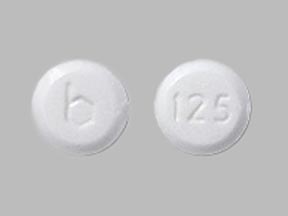Jinteli Interactions
There are 501 drugs known to interact with Jinteli (ethinyl estradiol/norethindrone), along with 22 disease interactions, and 9 alcohol/food interactions. Of the total drug interactions, 77 are major, 374 are moderate, and 50 are minor.
- View all 501 medications that may interact with Jinteli
- View Jinteli alcohol/food interactions (9)
- View Jinteli disease interactions (22)
Most frequently checked interactions
View interaction reports for Jinteli (ethinyl estradiol / norethindrone) and the medicines listed below.
- alprazolam
- amlodipine
- baclofen
- biotin
- Calcium 600 D (calcium / vitamin d)
- Crestor (rosuvastatin)
- diclofenac
- Fish Oil (omega-3 polyunsaturated fatty acids)
- Flexeril (cyclobenzaprine)
- gabapentin
- hydrochlorothiazide
- hydroxyzine
- ibuprofen
- Lasix (furosemide)
- levothyroxine
- lisinopril
- loratadine
- losartan
- magnesium oxide
- meloxicam
- multivitamin
- naproxen
- omeprazole
- simvastatin
- Singulair (montelukast)
- tramadol
- Vitamin B12 (cyanocobalamin)
- Vitamin D3 (cholecalciferol)
- Zoloft (sertraline)
- Zyrtec (cetirizine)
Jinteli alcohol/food interactions
There are 9 alcohol/food interactions with Jinteli (ethinyl estradiol / norethindrone).
Jinteli disease interactions
There are 22 disease interactions with Jinteli (ethinyl estradiol / norethindrone) which include:
- smoking
- abnormal genital bleeding
- abnormal vaginal bleeding
- carcinomas (estrogenic)
- hypercalcemia in breast cancer
- hypertension
- thromboembolism/cardiovascular
- hepatic neoplasms
- breast malignancy
- liver disease
- thromboembolism
- angioedema
- gallbladder disease
- hyperlipidemia
- liver disease
- melasma
- depression
- fluid retention
- glucose intolerance
- thyroid function tests
- hyperlipidemia
- weight gain
More about Jinteli (ethinyl estradiol / norethindrone)
- Jinteli consumer information
- Compare alternatives
- Pricing & coupons
- Drug images
- Side effects
- Dosage information
- During pregnancy
- Drug class: sex hormone combinations
- En español
Related treatment guides
Drug Interaction Classification
| Highly clinically significant. Avoid combinations; the risk of the interaction outweighs the benefit. | |
| Moderately clinically significant. Usually avoid combinations; use it only under special circumstances. | |
| Minimally clinically significant. Minimize risk; assess risk and consider an alternative drug, take steps to circumvent the interaction risk and/or institute a monitoring plan. | |
| No interaction information available. |
See also:
Further information
Always consult your healthcare provider to ensure the information displayed on this page applies to your personal circumstances.


